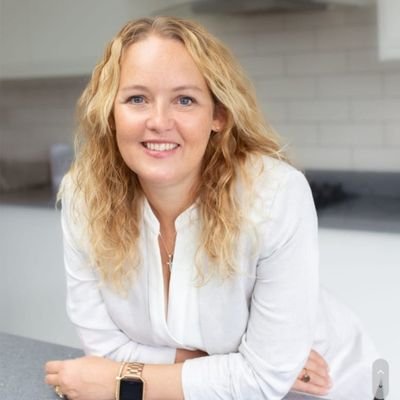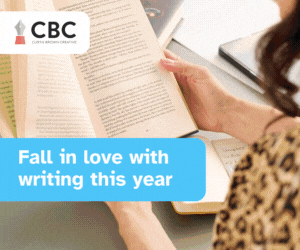Ask An Industry Expert: Emily Ruston
18 January 2023

Today I’m delighted Emily Ruston at Boldwood Books who was nominated by Alex Stone author of ‘The Perfect Daughter’
Hello and welcome, Emily. I believe you have edited for almost all the major publishing houses, and also with self-published authors. I’m wondering if you have found any differences between working with traditional published and Indie authors.
In terms of the actual process of editing there is very little difference. Story structure, characterisation, conflict and motivation are issues that all authors – whether trad or indie – sometimes struggle and need help with. In this scenario all authors are the same when it comes to revisions!
I suppose there is a difference when it comes to how far to push those revisions. Traditionally published authors might have a bit more pressure to keep going with revisions until the book is exactly what the editor/publisher wants. Whereas an Indie pub can say, ‘I’m happy with this as it is and am going to go ahead and publish my story my way.’
Would you be able to tell us what you feel are your greatest strengths as an editor, and is this one of, or even the most important thing uppermost in your mind when you are presented with a new manuscript?
I like to think – and certainly hope! – that I am quite a collaborative editor. I love brainstorming with an author about tricky plot problems and coming up with ideas as to how we might fix things. But I don’t think this is in my mind when I first read a manuscript.
In that first read I am simply a reader, hoping to enjoy a book. It’s only when it starts to go wrong that my editor brain kicks in and says – ‘Oh, this could be better…what if we did this?’
What’s your favourite part of the editing process?
Hands down it’s working with an author to make a tricky book extra brilliant. I might have an idea how this is going to play out after revisions, only for that author to completely blow me away with an idea neither of us thought of! It can be like reading a brand-new book and it’s just wonderful when it happens – like magic!
I saw that Boldwood has been awarded Fox Williams Independent Publisher of the Year Award and an award at the Independent Publishers Guild Awards, the Paperback Shop Trade Publisher of the Year. And still only in its third year of existence. A wonderful achievement. Congratulations. And with so many new authors, writing different genres coming on board, you are currently closed for submissions. So, on behalf of authors wanting to be on Boldwood books, I’d like to ask, are there regular times when the press is open for submissions, does it depend on the market, or on other criteria?
Thank you! It’s been a really exciting time and we are so proud of all our achievements and our authors too – it really is a brilliant team effort! There are no set times when our inbox might open. Sometimes its market led, but sometimes It could be if an editor is looking for a certain kind of book in a particular genre. We are always looking for new talent though so keep checking back!
What advice would you give people when they submit and has that changed with people submitting digitally?
Research is key! You have to treat your pitch as though you were applying for a job interview. Do you know your stuff? Do you understand who you are submitting to. Are they already publishing what you write? Will you stand out on their list or are their lots of other authors writing the same kind of thing? How can you make you and your writing stand out? Research, research, research!
Do you google authors, and do you look at their social media when making a decision about their book?
I am quite nosey so I will always look authors up on social media, but this won’t necessarily impact on whether I make a decision to acquire their work. If I am going to acquire this will be based on story idea and author voice – if this is compelling that’s all that matters.
How do you approach writing a pitch or blurb for a book you’re editing?
Oh, I love writing blurbs! Except for the days I hate writing blurbs! Sometimes I will agonise over the direction I think a blurb needs to take – what parts of the story do I want to tell readers? How best am I going to convey this message? Sometimes I can spend a day writing a blurb, other days I can write one in 10 mins.
Sometimes I will try and sum up the book in once sentence. Then go on and flesh that out. Other times I might focus on a particular character viewpoint and try and get into their head.
What is your advice to someone working on a series? Do you like to find series, or do you prefer standalone novels?
I am passionate about brilliant stories, whether that comes in series form or as a standalone. A series can be great for really developing characters in a lot more depth over a longer time and allows you to explore different storylines with multiple characters. You can really take the time to world build in a lot more depth. It’s also nice to revisit the same community and meet up with old friends.
But standalones can bring a really intense hit of drama and leave you thinking about the story and the characters long after you’ve finished reading.
Do you think an author should keep to one genre? How much do you think an author should expect to ‘brand’ their kinds of books in that way? Should someone changing genre use a new name?
I don’t think an author should stick to one genre, no. But it is important to think about author brand and what you are offering to your readers. Readers like what they like and will come back to an author for more of a good thing. But if you started your career writing romance and then suddenly switch, don’t be surprised if some readers don’t follow you…
Creating a new author name can be a great idea especially if the genres are very different.
Just as a matter of interest, do you envisage the cover of a book that you are editing, how much input, if any, do you have to the covers?
Sometimes a cover will jump out at you whilst reading and you will have a clear picture of how a book might look. Other times it might be that you look at other titles in the market and see what’s working for books in a similar genre. We work really closely with designers to ensure that a book’s package is as strong as it can be.
Can you remember the first book you edited?
Gosh! What a great question! I cut my teeth as a little baby editor at Harlequin/Mills & Boon so it would have probably been one of the legends – like Emma Darcy, Helen Bianchin, Michelle Reid or Lynne Graham. These authors knew their craft inside out, so it was excellent learning as a new editor to just read their stories and see how a good romance should be done.
And every word simply has to count. There can be no florid description or exposition – these books are about character, conflict and emotion. If one of these elements is missing or doesn’t work then you know about it – and fast!
Finally, and this is a question that has intrigued me for a long time, how does a publisher decide when is a best time to publish certain books? I’m thinking about stories with Christmas themes and so on.
Sometimes this will led simply by author delivery. For Christmas titles, we like to start getting these out by August/September to give them as much time as possible in the market. But as a global publisher, it’s always summer or winter somewhere in the world!
Thank you so much for taking the time to talk with us today, Emily, I’m sure your words will inspire and encourage many authors.
Find Emily:
On Twitter: https://twitter.com/MrsRuston
Website: http://www.rustonhutton.com/


